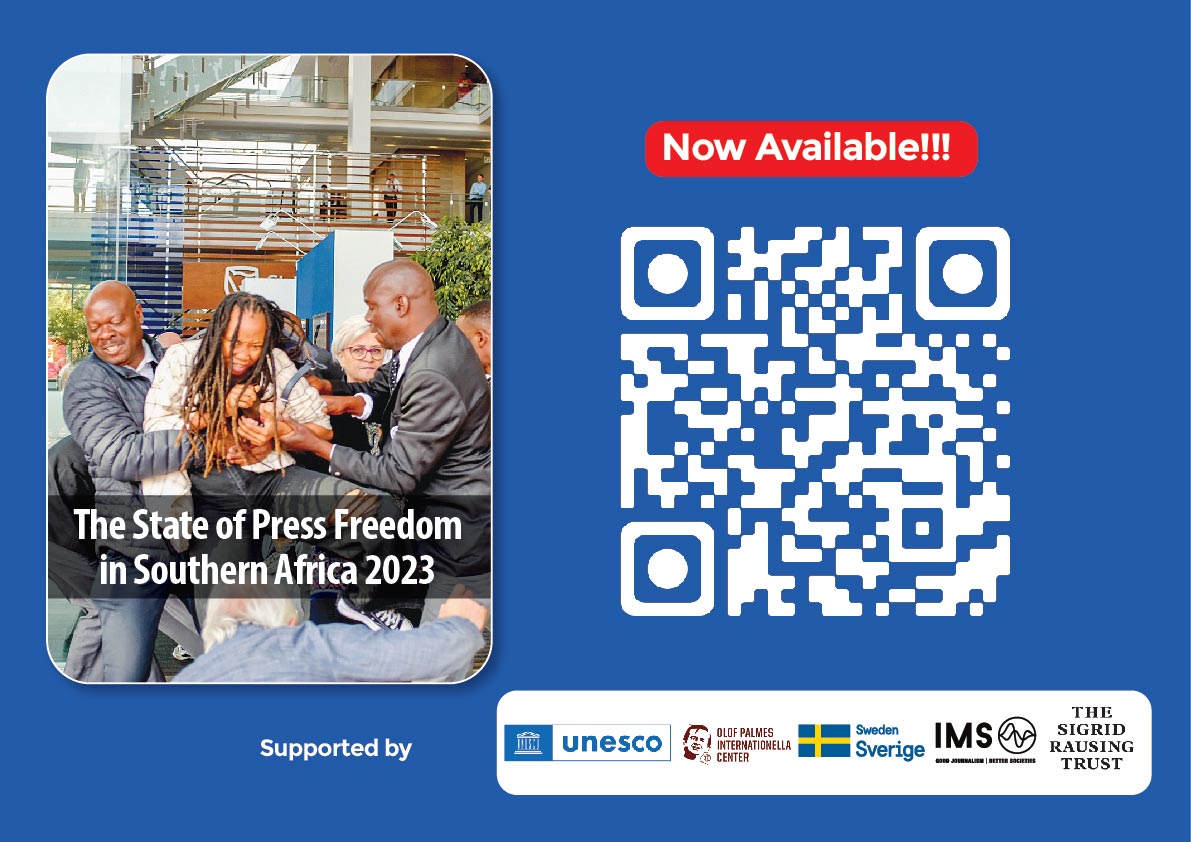The focus of this year’s World Press Freedom Day commemorations — the importance of journalism and freedom of expression in the context of the current global environment crisis — is apt, as it comes when the Southern African region is experiencing the effects of a climate shock.
In 2023 and 2024, the region was hit by effects of the El Niño phenomenon, which is characterised by warm weather and reduced rainfall, leading to widespread food insecurity.
As of April 2024, at least three Southern African countries — Malawi, Zambia, and Zimbabwe — had declared the 2023-2024 agricultural season a state of disaster.
The three countries are seeking billions of dollars to stave off hunger.
In such a situation, access to information and awareness are vital components in mitigating the effects of the drought.
This assists an informed citizenry to make informed decisions about their lives regarding the environmental crisis.
Inadequate access to information creates a vacuum often filled with quackery, conspiracy theories, misinformation, and disinformation, which only aggravates the effects of the environmental crisis — in this case, the El Niño phenomenon.
This was the case during the COVID-19 pandemic, which is still fresh in many people’s minds.
Authorities did not provide adequate information, and journalists were not allowed to perform their duties freely, resulting in a spike in misinformation that impacted efforts to curb the spread of the disease.
One of the lessons and experiences drawn from the COVID-19 pandemic is that journalists are allies in mitigating the effects of disasters such as those caused by climate change.
Furthermore, access to reliable information helps separate fact from fiction, with journalists being a key conduit of information between scientists and government officials, on one hand, and citizens, on the other.
The United Nations (UN) recognises that access to information is a key building block to creating democratic societies and strengthening democracy in the face of growing misinformation and disinformation.
For this reason, UN Sustainable Development Goal (SDG) 16.10 specifically addresses public access to information and protecting fundamental freedoms.
As the world in general, and Southern Africa in particular, continues to face the current environmental crisis, authorities must view journalists as friends rather than enemies.
The media is a building block for democracy and progress and, most importantly, a channel for enhanced access to information rather than a medium that needs to be censored.
In the year ahead, we need to expend our energies fighting for the rights of all journalists, particularly environmental journalists, to lessen the effects of climate change. Access to information is imperative in combating any disaster.
We should focus on training and building the capacity of journalists to report more effectively on climate and environmental issues to protect the planet and inform the public for a better understanding of these issues.
Various international organisations, governments, non-governmental organisations, and advocacy groups are using public interest information to redouble their efforts for a more sustainable future in line with the Sustainable Development Goals of the 2030 Agenda for Sustainable Development.
As we commemorate this year’s World Press Freedom Day, we must be conscious of the persistent and emerging threats to media freedom.
The emergence of new technologies has aggravated attacks on journalists — particularly women journalists — who face disproportionate violations online.
In addition, women, generally, are more affected and face greater risks and disproportionate burdens due to the impacts of climate change, notably women in situations of poverty due to existing roles, responsibilities, and cultural norms.
Undoubtedly, the battle to instill and inculcate a gendered thrust and approach to confront gender violence is urgent.









